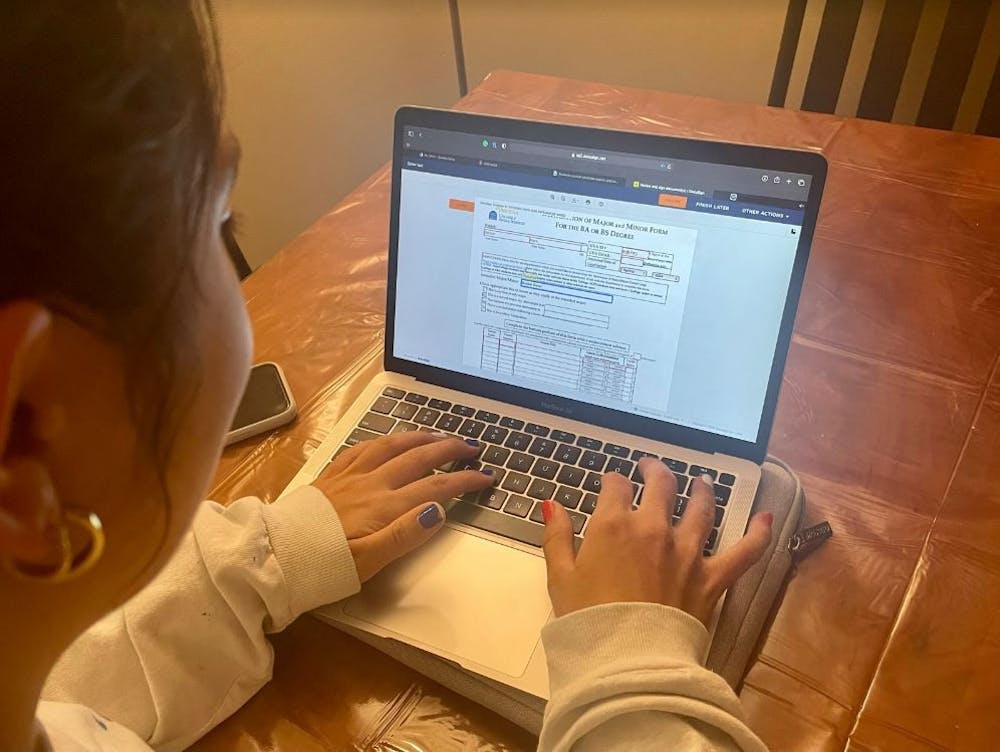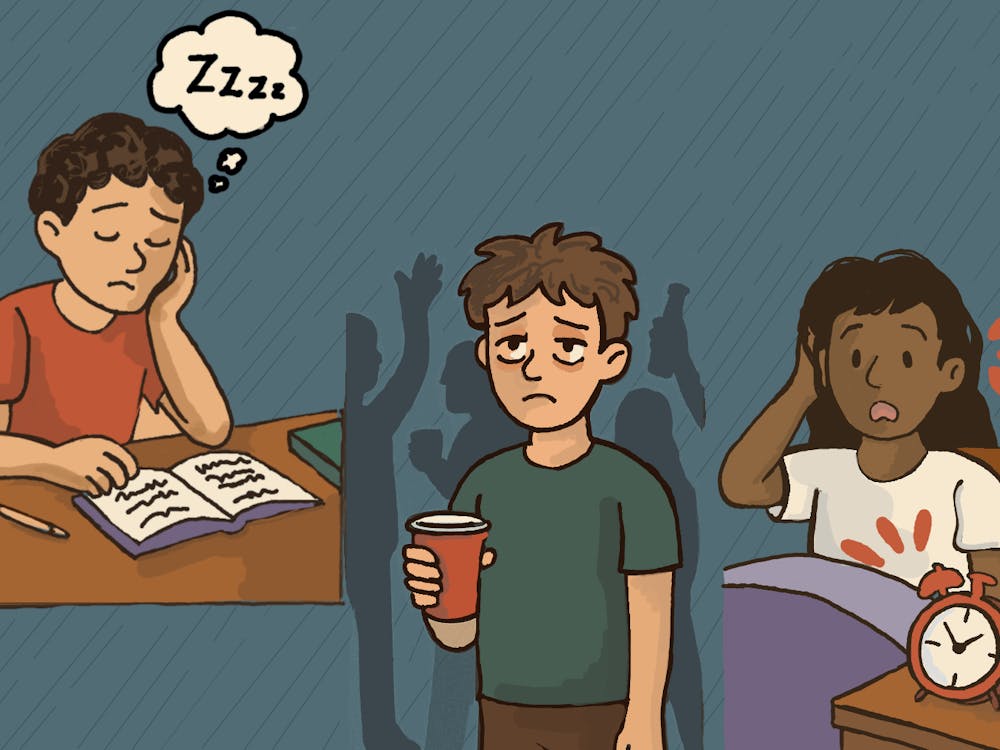Fall ushers in an opportunistic time for students of all years of study. For second-year students in the College of Arts and Sciences, this year marks the penultimate semester of study before they must declare their major, per the University’s fourth semester deadline. For many, however, declaring a major means you must first get into one.
Not all majors require an application, though many do. Students eagerly look forward to these decisions regarding their future academic careers at the University. Of course, it is unfortunately true that not all students are admitted to their desired major — leaving some to frantically pivot their plans. Although it can be a stressful situation, these students tend to find fulfilling alternative solutions.
One such student is fourth-year College student Akhil Halvadar. Halvadar applied to the McIntire School of Commerce in the fall of his second year. The School of Commerce requires prerequisite courses in economics, statistics and an introductory Commerce course before students apply in the fall of their second year. The 2022 acceptance rate was 61 percent, with a total of 375 admitted students.
Even though Havaldar was not admitted, he now enjoys double majoring in economics and statistics.
“It was an opportunity to explore paths I wouldn’t have initially thought to explore,” Havaldar said. “Not getting into Comm pushed me to give more thought toward what I wanted to do career-wise. When I applied to Comm, I assumed I would figure out what I wanted to do once I got there.”
Havaldar also used University resources on LinkedIn to reach out to alumni pursuing fields tangential to business, such as quantitative statistics and economics, without admittance into the School of Commerce. Most advised him to continue his exploration and find out what fields he may be interested in and what he’s passionate about.
“They said keep exploring, find out what you actually enjoy learning about, and go to events where you can meet people and ask questions,” Havaldar said. “Pretty much anything that could give me insight into what I wanted to do or what I might find interesting. I took their advice and went down that path, which is how I found econ and statistics.”
Like Havaldar, fourth-year College student Walter Halbleib was not offered admission to Commerce and is now majoring in economics with a minor in math. He found speaking to members on the Commerce admissions team about his application was helpful in further understanding his career goals and what hiring managers would see as he applied to jobs and internships.
“Being able to understand where my shortcomings were in my application and why the school was not necessarily interested in me helped me understand myself better and realize what it is that other people would see in external applications for jobs,” Halbleib said.
Fourth-year College student Ainsley Zimmer also used University resources to explore alternate majors and career paths after not getting into the Frank Batten School of Leadership and Public Policy. Batten offers a Bachelor of Arts in Public Policy and Leadership as well as two minors — with a 42 percent acceptance rate to the major this past spring. Applications for each program open in the fall and close early in the spring every year.
After not getting into Batten, a past professor encouraged her to pursue the Distinguished Majors Program in the sociology department. Zimmer is now a student in the DMP and double majors in government through the Department of Politics with a minor in data analytics. Though initially upset by Batten’s decision, Zimmer found alternative enriching opportunities at the University.
“The biggest thing that helped me get over being upset was going back and reevaluating what I wanted,” Zimmer said. “I got more into Sociology and decided to do a data analytics minor which helped me get the analytical skills I wanted from Batten.”
Other students find themselves struggling with competitive majors in the College. Third-year College student Adam Ashley had wished to pursue the Global Development Studies major, which has a deadline in February of a student’s second year. The major entails a two-semester seminar followed by a fourth year research paper. Ashley also had to take a step back reevaluate after not being offered admittance — he felt he had allowed himself to get caught up in the prestige of the program.
“When I came to U.Va., I planned on majoring in government and I think the hype associated with the programs that you apply into that have very low acceptance rates kind of blinded me to what I was really interested in,” Ashley said.
Despite being unable to take the Global studies-specific courses, Ashley remains confident that he’s still able to pursue a career in his passion — public policy.
“I feel like I don't need to be in [Global Studies] to work in [public policy],” Ashley said. “But at the same time, I do feel like I'm limited in what courses I can take regarding those issues because they're not necessarily going to fulfill credits for my government major.”
In the end, all four students emphasize that keeping interests and choices open is just as important as staying positive throughout the process.
“There are so many other options that you could transition to since there’s a lot of similar fields for people with these interests,” Havaldar said. “Not getting into one school or major isn’t the end of the world, there are so many other paths out there that you’ll find yourself enjoying, and it’s still a good career path to go down.”







